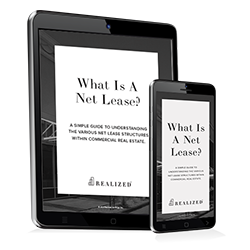The Realized Team’s Picks
How Much Does a Retirement Plan Cost?

The earlier you establish a retirement plan and continue to make contributions, the better off you’ll potentially be. What better way to start retirement than to be financially prepared and stress-free?
How Does An UPREIT Transaction Work?

In a typical arrangement for a publicly traded Real Estate Investment Trust, or REIT, the trust is a general partner that holds and manages its assets through an operating partnership subsidiary. In this way, the REIT is the umbrella partnership that owns most of the Operating Partnership units. The balance of OP Units are held by limited outside partners who obtain their OP units in exchange for the contribution of real estate assets to the REIT pool.
Is Retirement Income Taxable?

When you’re planning for retirement, you need to take taxes into account. Whether or not your retirement income is taxable depends on where your retirement income comes from and how much you’ll have. Income taxes after retirement will likely be one of your largest expenses. Planning for taxes after retirement and knowing what or if you owe anything is the best way to avoid financial stress down the road.
Is Rental Property Considered Passive Income?

In most cases, earnings from rental property is considered passive income. Passive income is money earned from business activities where the individual is not active in the day-to-day operations. However, income from rental properties is almost always considered passive, even if the owner is involved in the management of the property.
Ways to Structure Retirement Income

Retirement looks different for everyone. Some people retire in their 50s, many work well into their 70s. But one thing retirees have in common is the need to understand ways to structure retirement income so they are financially secure when they stop working.
Examples of Tenant In Common Deeds

A tenants-in-common agreement is a type of shared property ownership. If you’re a co-tenant in a TIC arrangement, you own a specific percentage of a specific property (or properties), along with other co-tenants, or owners.
What You Need To Know About Suspended Losses On Sale Of Rental Property

Let’s say that you’re the direct owner of a rental property portfolio, and you’ve decided to sell the bulk of it. You’ve decided not to go the 1031 exchange route, understanding that capital gains taxes will be assessed on your profits.
How Long After Realizing Gains Can You Reinvest Into Opportunity Zones?

Thanks to the Tax Cuts and Jobs Act, real estate investors who have capital gains income can benefit from tax incentives offered through the Qualified Opportunity Zone (QOZ) program. Investors can defer or even possibly eliminate a portion of their capital gains tax liability.
What Does a Landlord Pay in a Single Net Lease?

If you google the term “single net lease,” you could find that very little content describing JUST the single net lease will pop up. The likely reason behind the lack of single net lease articles is because the single net lease arrangement isn’t very common. Still, as is the case with any contract between a property owner and tenant, it’s important to have an overview of all types of leases, whether they are prevalent or rare.
Is an UPREIT a Good Investment?

An UPREIT (Umbrella Partnership Real Estate Investment Trust) is as much a vehicle for investment as it is an actual investment type. That's because it is a method of transferring a property from individual ownership into a trust in exchange for a stake in the trust. The owner of a piece of appreciated real estate contributes the asset to the REIT in a trade (like a 1031 exchange, with the same tax deferral advantage) and receives in return operating partnership units in the REIT.


